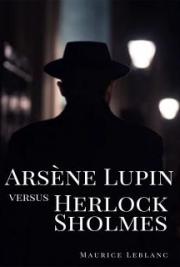EPILOGUE
THE FIRST SUCCESS
Safe, in his own princely mansion, and surrounded by an army of retainers, the Duc de Sairmeuse triumphantly exclaimed: "We have outwitted Lecoq."
In this he was right.
But he thought himself forever beyond the reach of the wily, keen- witted detective; and in this he was wrong.
Lecoq was not the man to sit down with folded hands and brood over the humiliation of his defeat.
Before he went to Father Tabaret, he was beginning to recover from his stupor and despondency; and when he left that experienced detective's presence, he had regained his courage, his command over his faculties, and sufficient energy to move the world, if necessary.
"Well, my good man," he remarked to Father Absinthe, who was trotting along by his side, "you have heard what the great Monsieur Tabaret said, did you not? So you see I was right."
But his companion evinced no enthusiasm.
"Yes, you were right," he responded, in woebegone tones.
"Do you think we are ruined by two or three mistakes? Nonsense! I will soon turn our defeat of today into a glorious victory."
"Ah! you might do so perhaps, if--they do not dismiss us from the force."
This doleful remark recalled Lecoq to a realizing sense of the present situation.
They had allowed a prisoner to slip through their fingers. That was vexatious, it is true; but they had captured one of the most notorious of criminals--Joseph Conturier. Surely there was some comfort in that.
But while Lecoq could have borne dismissal, he could not endure the thought that he would not be allowed to follow up this affair of the Poivriere.
What would his superior officers say when he told them that May and the Duc de Sairmeuse were one and the same person?
They would, undoubtedly, shrug their shoulders and turn up their noses.
"Still, Monsieur Segmuller will believe me," he thought. "But will he dare to take any action in the matter without incontrovertible evidence?"
This was very unlikely. Lecoq realized it all too well.
"Could we not make a descent upon the Hotel de Sairmeuse, and, on some pretext or other, compel the duke to show himself, and identify him as the prisoner May?"
He entertained this idea only for an instant, then abruptly dismissed it.
"A stupid expedient!" he exclaimed. "Are two such men as the duke and his accomplice likely to be caught napping? They are prepared for such a visit, and we should only have our labor for our pains."
He made these reflections sotto voce; and Father Absinthe's curiosity was aroused. "Excuse me," said he, "I did not quite understand you."
"I say that we must find some tangible proof before asking permission to proceed further."
He paused with knitted brows.
In seeking a circumstance which would establish the complicity between some member of the duke's household and the witnesses who had been called upon to give their testimony, Lecoq thought of Mme. Milner, the owner of the Hotel de Mariembourg, and his first meeting with her.
He saw her again, standing upon a chair, her face on a level with a cage, covered with a large piece of black silk, persistently repeating three or four German words to a starling, who as persistently retorted: "Camille! Where is Camille?"
"One thing is certain," resumed Lecoq; "if Madame Milner--who is a German and who speaks with the strongest possible German accent--had raised this bird, it would either have spoken German or with the same accent as its mistress. Therefore it cannot have been in her possession long, and who gave it to her?"
Father Absinthe began to grow impatient.
"In sober earnest, what are you talking about?" he asked, petulantly.
"I say that if there is someone at the Hotel de Sairmeuse named Camille, I have the proof I desire. Come, Papa Absinthe, let us hurry on."
And without another word of explanation, he dragged his companion rapidly along.
When they reached the Rue de Crenelle, Lecoq saw a messenger leaning against the door of a wine-shop. Lecoq called him.
"Come, my boy," said he; "I wish you to go to the Hotel de Sairmeuse and ask for Camille. Tell her that her uncle is waiting her here."
"But, sir----"
"What, you have not gone yet?"
The messenger departed; the two policemen entered the wine-shop, and Father Absinthe had scarcely had time to swallow a glass of brandy when the lad returned.
"Monsieur, I was unable to see Mademoiselle Camille. The house is closed from top to bottom. The duchess died very suddenly this morning."
"Ah! the wretch!" exclaimed the young policeman. Then, controlling himself, he mentally added:
"He must have killed his wife on returning home, but his fate is sealed. Now, I shall be allowed to continue my investigations."
In less than twenty minutes they arrived at the Palais de Justice.
M. Segmuller did not seem to be immoderately surprised at Lecoq's revelations. Still he listened with evident doubt to the young policeman's ingenious deductions; it was the circumstance of the starling that seemed to decide him.
"Perhaps you are right, my dear Lecoq," he said, at last; "and to tell the truth, I quite agree with you. But I can take no further action in the matter until you can furnish proof so convincing in its nature that the Duc de Sairmeuse will be unable to think of denying it."
"Ah! sir, my superior officers will not allow me----"
"On the contrary," interrupted the judge, "they will allow you the fullest liberty after I have spoken to them."
Such action on the part of M. Segmuller required not a little courage. There had been so much laughter about M. Segmuller's grand seigneur, disguised as a clown, that many men would have sacrificed their convictions to the fear of ridicule.
"And when will you speak to them?" inquired Lecoq, timidly. "At once."
The judge had already turned toward the door when the young policeman stopped him.
"I have one more favor to ask, Monsieur," he said, entreatingly. "You are so good; you are the first person who gave me any encouragement-- who had faith in me."
"Speak, my brave fellow."
"Ah! Monsieur, will you not give me a message for Monsieur d'Escorval? Any insignificant message--inform him of the prisoner's escape. I will be the bearer of the message, and then-- Oh! fear nothing, Monsieur; I will be prudent."
"Very well!" replied the judge.
When he left the office of his chief, Lecoq was fully authorized to proceed with his investigations, and in his pocket was a note for M. d'Escorval from M. Segmuller. His joy was so intense that he did not deign to notice the sneers which were bestowed upon him as he passed through the corridors. On the threshold his enemy Gevrol, the so- called general, was watching for him.
"Ah, ha!" he laughed, as Lecoq passed out, "here is one of those simpletons who fish for whales and do not catch even a gudgeon."
For an instant Lecoq was angry. He turned abruptly and looked Gevrol full in the face. "That is better than assisting prisoners to carry on a surreptitious correspondence with people outside," he retorted, in the tone of a man who knows what he is saying.
In his surprise, Gevrol almost lost countenance, and his blush was equivalent to a confession.
But Lecoq said no more. What did it matter to him now if Gevrol had betrayed him! Was he not about to win a glorious revenge?
He spent the remainder of the day in preparing his plan of action, and in thinking what he should say when he took M. Segmuller's note to Maurice d'Escorval.
The next morning about eleven o'clock he presented himself at the house of M. d'Escorval.
"Monsieur is in his study with a young man," replied the servant; "but, as he gave me no orders to the contrary, you may go in."
Lecoq entered.
The study was unoccupied. But from the adjoining room, separated from the study only by a velvet portiere, came a sound of stifled exclamations, and of sobs mingled with kisses.
Not knowing whether to remain or retire, the young policeman stood for a moment undecided; then he observed an open letter lying upon the carpet.
Impelled to do it by an impulse stronger than his own will, Lecoq picked up the letter. It read as follows:
"The bearer of this letter is Marie-Anne's son, Maurice--your son. I have given him all the proofs necessary to establish his identity. It was to his education that I consecrated the heritage of my poor Marie-Anne.
"Those to whose care I confided him have made a noble man of him. If I restore him to you, it is only because the life I lead is not a fitting life for him. Yesterday, the miserable woman who murdered my sister died from poison administered by her own hand. Poor Marie-Anne! she would have been far more terribly avenged had not an accident which happened to me, saved the Duc and the Duchesse de Sairmeuse from the snare into which I had drawn them.
"Jean Lacheneur."
Lecoq stood as if petrified.
Now he understood the terrible drama which had been enacted in the Widow Chupin's cabin.
"I must go to Sairmeuse at once," he said to himself; "there I can discover all."
He departed without seeing M. d'Escorval. He resisted the temptation to take the letter with him.
It was exactly one month to a day after the death of Mme. Blanche.
Reclining upon a divan in his library the Duc de Sairmeuse was engaged in reading, when Otto, his valet de chambre, came to inform him that a messenger was below, charged with delivering into the duke's own hands a letter from M. Maurice d'Escorval.
With a bound, Martial was on his feet. "Is it possible?" he exclaimed.
Then he added, quickly: "Let the messenger enter."
A large man, with a very florid complexion, and red hair and beard, timidly handed the duke a letter, he broke the seal, and read:
"I saved you, Monsieur, by not recognizing the prisoner, May. In your turn, aid me! By noon, day after to-morrow, I must have two hundred and sixty thousand francs.
"I have sufficient confidence in your honor to apply to you. "Maurice d'Escorval."
For a moment Martial stood bewildered, then, springing to a table, he began writing, without noticing that the messenger was looking over his shoulder:
"Monsieur--Not day after to-morrow, but this evening. My fortune and my life are at your disposal. It is but a slight return for the generosity you showed in retiring, when, beneath the rags of May, you recognized your former enemy, now your devoted friend, "Martial de Sairmeuse."
He folded this letter with a feverish hand, and giving it to the messenger with a louis, he said:
"Here is the answer, make haste!" But the messenger did not go.
He slipped the letter into his pocket, then with a hasty movement he cast his red beard and wig upon the floor.
"Lecoq!" exclaimed Martial, paler than death.
"Lecoq, yes, Monsieur," replied the young detective. "I was obliged to take my revenge; my future depended upon it, and I ventured to imitate Monsieur d'Escorval's writing." And as Martial made no response:
"I must also say to Monsieur le Duc," he continued, "that on transmitting to the judge the confession written by the Duke's own hand, of his presence at the Poivriere, I can and shall, at the same time, furnish proofs of his entire innocence."
And to show that he was ignorant of nothing, he added:
"As madame is dead, there will be nothing said in regard to what took place at the Borderie."
A week later a verdict of not guilty was rendered by M. Segmuller in the case of the Duc de Sairmeuse.
Appointed to the position he coveted, Lecoq had the good taste, or perhaps the shrewdness, to wear his honors modestly.
But on the day of his promotion, he ordered a seal, upon which was engraved the exultant rooster, which he had chosen as his armorial design, and a motto to which he ever remained faithful: Semper Vigilan.







